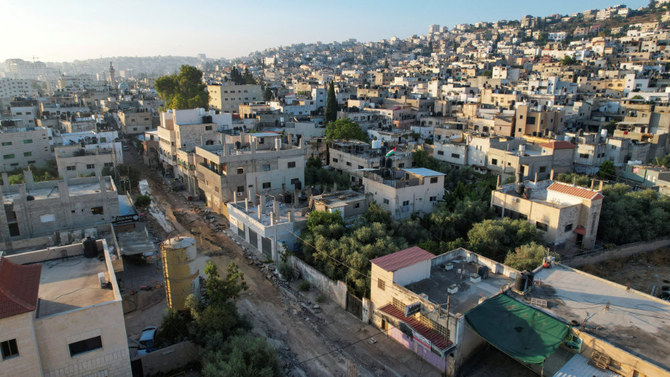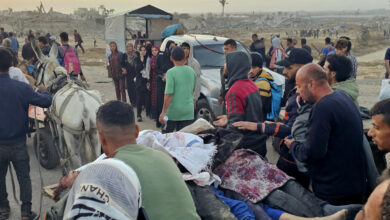New Generation Gives Palestinians Renewed hope

THE deadly Israeli invasion of Jenin last week was not a surprise. Also unsurprising is the fact that the killing of 12 Palestinians, wounding of 120 more and the destruction of nearly 80 percent of the refugee camp’s homes and infrastructure will make not one iota of difference.
Even Israeli Prime Minister Benjamin Netanyahu, despite his lofty promises of destroying the “safe haven … of the terrorist enclave in Jenin,” must have known that his bloody exercise would ultimately be futile.
As the Israeli military machine was toppling homes, smashing cars and harvesting lives, several Palestinian retaliatory attacks were reported, including in Tel Aviv last Tuesday and in the Kedumim illegal settlement two days later.
In fact, unlike the Israeli response to the Second Intifada of 2000, extreme violence will not weaken but will rather heighten the Palestinian resistance and counterattacks. Back then, the Palestinian Authority had a degree of control over Palestinian groups and managed, though with great difficulty, to contain the Palestinian street.
Now, the PA has no such leverage. Indeed, when a delegation of PA officials visited Jenin to show “solidarity” and to promise help in the recovery efforts, residents kicked the officials out of their camp. Thus, not only did Israel fail to regain any kind of control over Jenin, but the PA also did not succeed in reinventing itself as the saviour of the people.
So, what was the point of all of this? Writing in Haaretz, analyst Zvi Bar’el linked the whole Jenin operation, dubbed “House and Garden,” to Netanyahu’s “loss of political control” over his government; in fact, the whole country. It was “a showy operation,” Bar’el wrote, and “no sensible person in the army or the Shin Bet security service, or even in the silent circles of the right, actually believed that the operation would eradicate” the armed resistance, not only in Jenin but anywhere in the West Bank.
It was indeed a “showy operation” and the best proof of that is the language emanating from official Israeli sources, lead among them Netanyahu himself. The politically and also legally embattled right-wing Israeli leader bragged about his army’s “comprehensive action,” which he said was carried out in a “very systemic way … from the ground, from the air (and) with superb intelligence.” He vowed to “return to Jenin” if “Jenin returns to terror,” and this “will happen much faster and with much greater power than what people might imagine.”
Tel Aviv’s Minister of Defense Yoav Gallant also spoke of the military’s “success” in dealing “a heavy blow to the terror organisations in Jenin,” while recording “impressive operational achievements.”
But none of this hyped-up language is true. What Israel refers to as “terror organisations” in Jenin are part of a much larger phenomenon of armed resistance, which is itself an outcome of an even larger movement of popular resistance that is felt in every corner of the Occupied Territories.
Quelling the rebellion is not a question of firepower. On the contrary, Israel’s “impressive operational achievement” has simply poured fuel on a raging fire.





